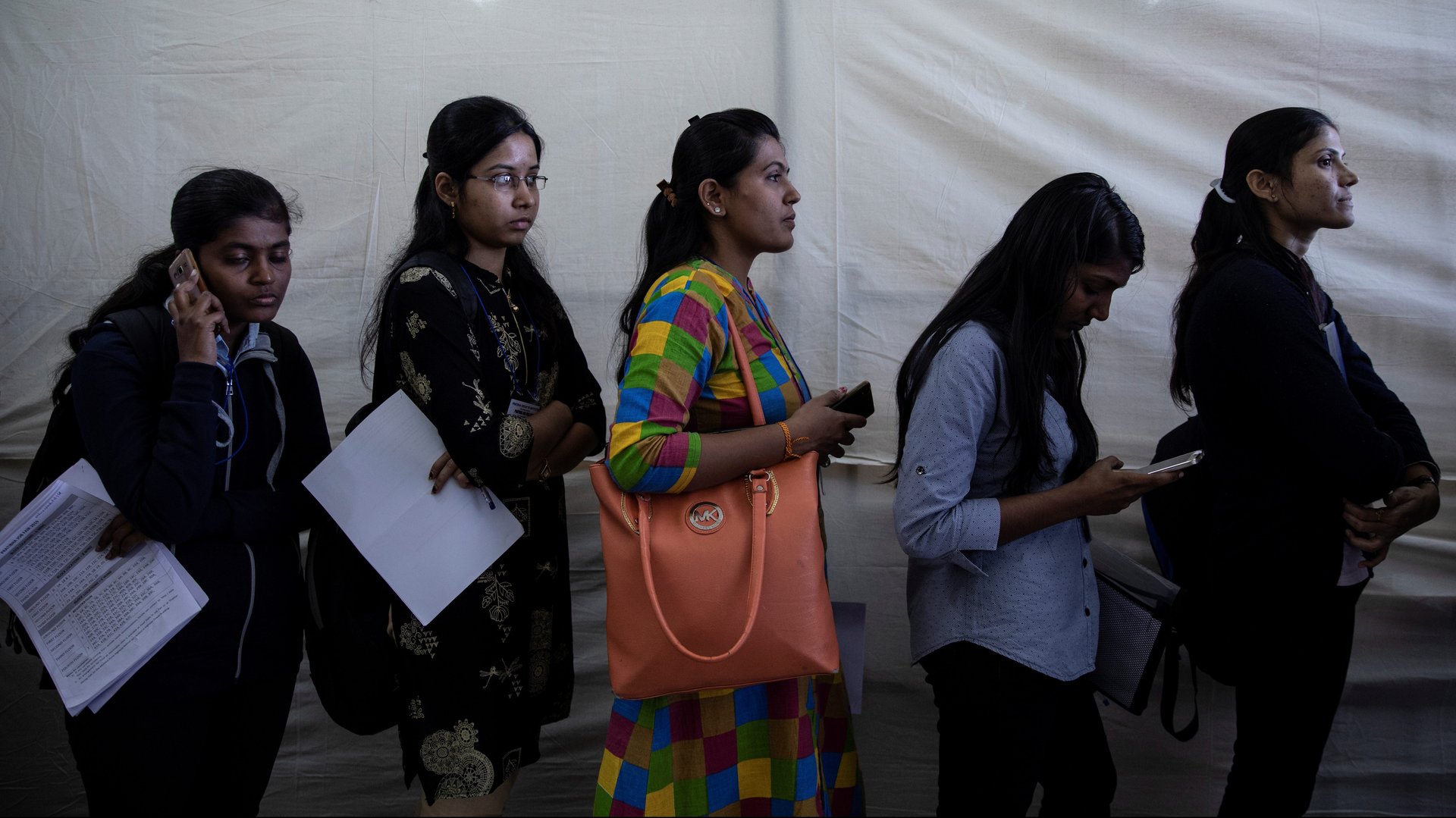Parents’ education or family incomes are no bars for women to pursue engineering in India
Female Indian techies are trailblazers of sorts.


Female Indian techies are trailblazers of sorts.
Around a third of India’s female engineers are first-generation graduates in their families, a new study by TalentSprint (pdf) has found. “It is observed that the aspiration for a global tech career among young women has no correlation with the educational backgrounds of their parents,” the firm said in a July 8 press release.
The Hyderabad-based online learning firm analysed 7,276 applications for its Women Engineers (WE) programme, received from students across 664 colleges and 83 universities in India. Supported by Google, WE will groom 600 female engineers for global high-tech careers over the next three years.
Beyond education, family background, too, is no bar for women to pursue engineering courses in India. An equal number of them come from cities and non-urban towns and villages. And the vast majority of them come from households with incomes below Rs6 lakh ($8,478) per annum.
Despite their enthusiasm for the field, female engineers tended to overestimate their coding skills.
Skills still a challenge
The study reveals that although there are many highly motivated women engineering students in India, a lot of them are unprepared for tech roles and are unaware of the latest technology trends.
“Only about half of the applicants have exposure to recent trends in programming languages like Python, Ruby, Scala, Kotlin, Elixir, and Clojure,” TalentSprint says. “While they have an aspiration for building a career in global tech, they are not in sync with new trends in the tech industry.”
Most of them say they are adept at more than one coding language.
But they’re nervous about putting their skills under the scanner, the report said. Of the 7,000-plus applicants, 3,075 took TalentSprint’s assessment. And only 20% scored well in all sections.
The women fared the best in quantitative and logical reasoning, “a primary filter for tech jobs” as per the study, but most of them did not pass the other categories. This signifies that colleges are not preparing engineers well for more complex skills.